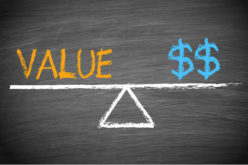Tips for personal and business credit

It is inevitable that an individual or business will at one time need to borrow financial resources to meet pressing needs or even expand.It is important however that ones credit health is never compromised to the extent of sabotaging chancing of borrowing in future.It is a fact that your credit history determines what loans you will qualify for and the interest rate you will pay.Lenders will always get your credit history to determine your credit worthiness by obtaining your credit score. Below care some tips which can assist in this regard.
1.You must always check your personal credit report from credit bureaus.These bureaus are by law bound to provide you with a free credit report.
2.You do need credit cards to establish a credit score. When evaluating your creditworthiness, creditors compare your available credit to the amount you use. Keep balances on each card to 20 or 30 percent of the available credit. Pay cards in full and on time each month.
3.Paying off debt boosts your credit score.However,if you pay off a credit card, don’t close the account.Having too few cards or having only newer cards can hurt your credit score.
4.Consider all the financial services you might need and whether a particular bank can provide them. Don’t forget about community banks and credit unions,which often have excellent services for small businesses.
5.If your personal credit is weak,find out about secured business credit cards.You will obviously need to put down a deposit against your initial credit line.As you establish a payment history,you can increase your credit line.
6.Make sure your paperwork such as your tax ID number,business bank account,financial statements and business plan are in order before approaching lenders.
7.Businesses are not required to report transactions to credit reporting agencies,so before you choose a supplier,ask whether they do so.Only use suppliers who report your information,otherwise you wont build a credit history.
8.To build a stronger credit record,establish different types of credit,including revolving credit,trade credit,loans and leases.
9.Keep business debt at a reasonable level for your industry and situation.Creditors will be hesitant if they see that your company has excessive debt.
10.You should monitor your business and personal credit on an ongoing basis.Your business banker can help ensure that you are doing everything possible to keep your credit in good order.










